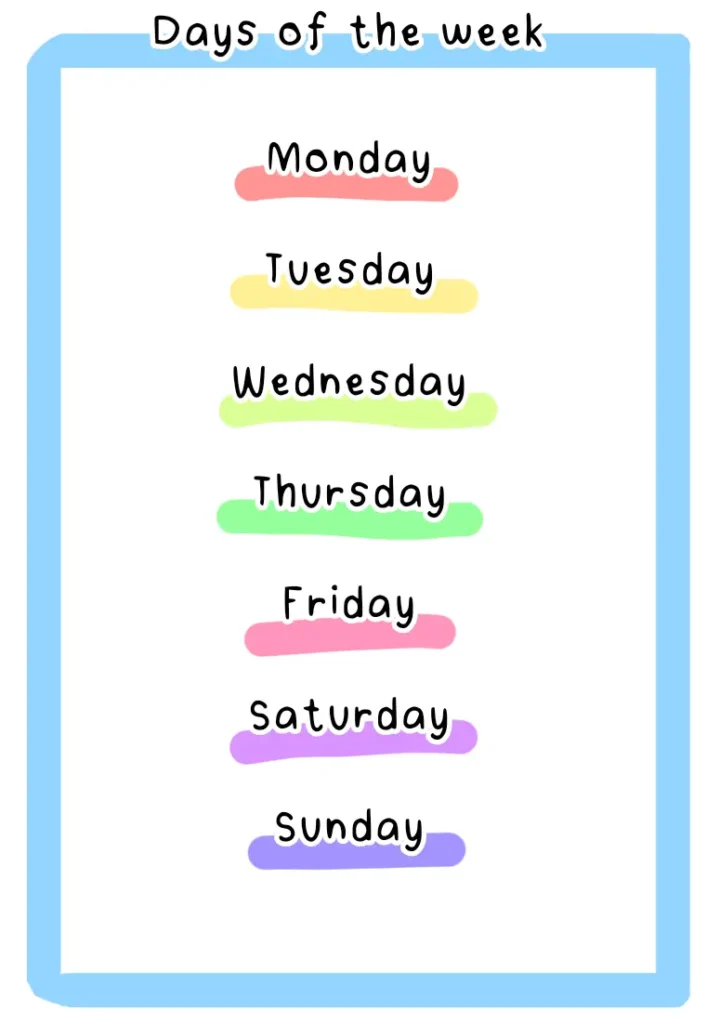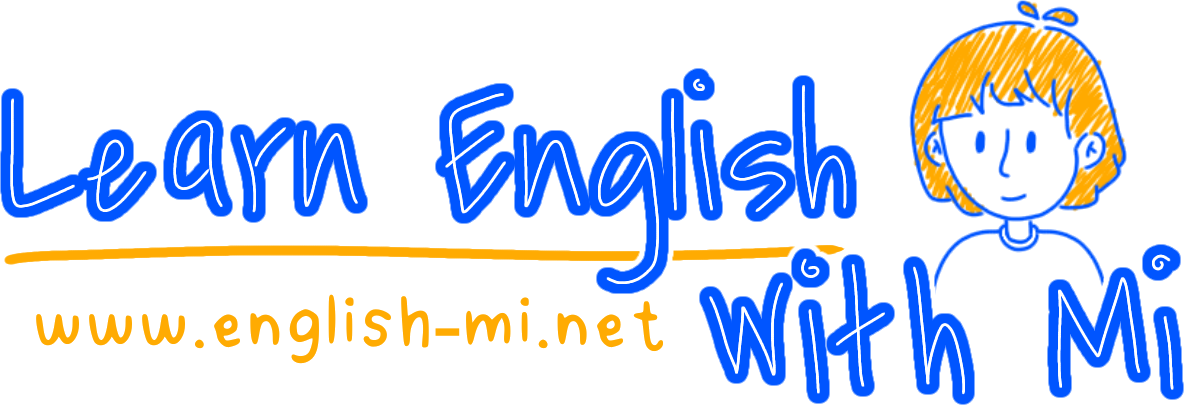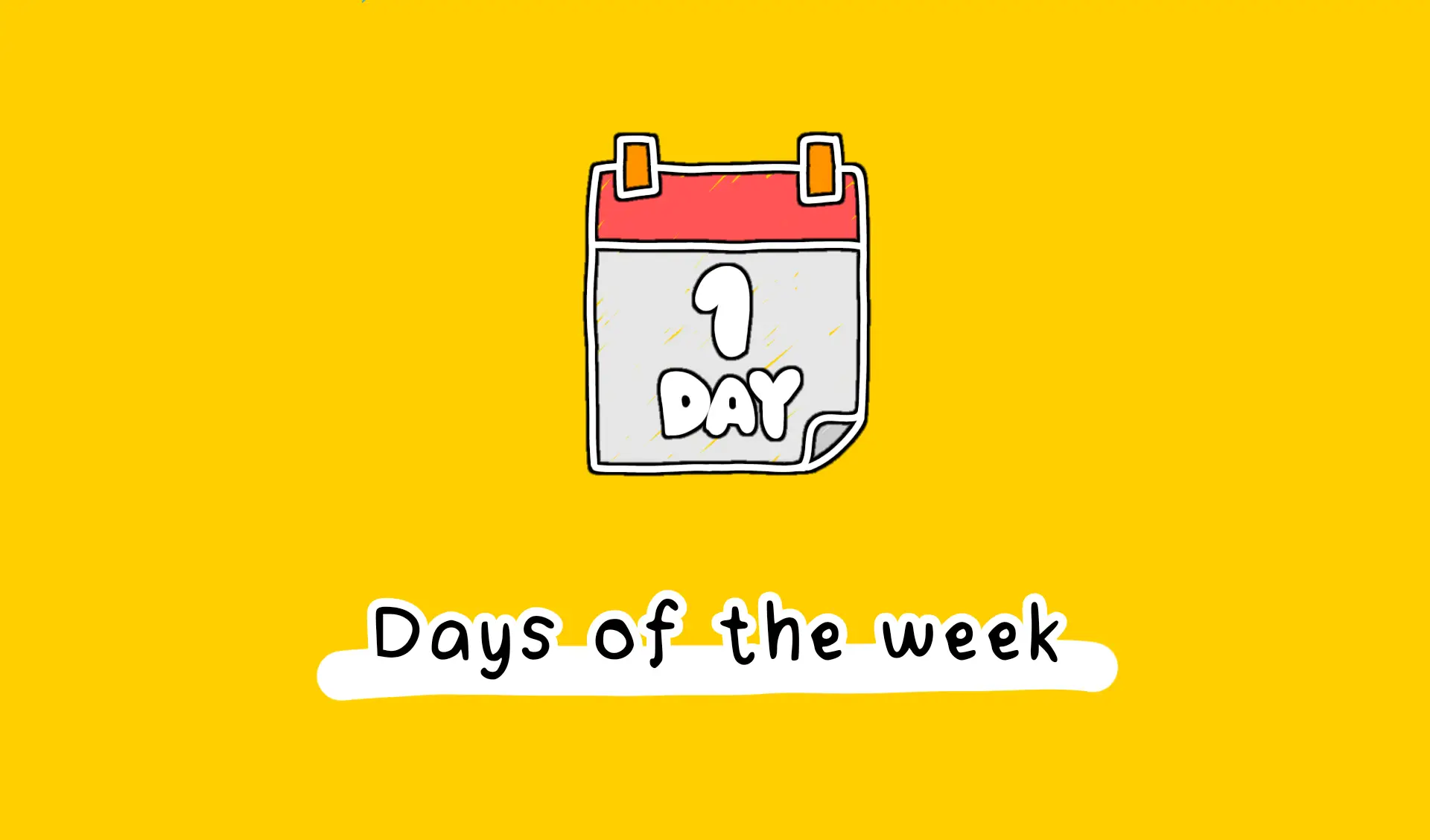There are seven days in a week, learning them is essential for English learners. From planning your schedule and managing appointments to understanding school terms. By knowing the sequence of days, you can manage your time effectively, avoid missing important events, and enhance your ability to communicate effectively in daily life.
Days of the week
- Monday
- Tuesday
- Wednesday
- Thursday
- Friday
- Saturday
- Sunday
Pronunciation of days
| the day | Pronunciation |
|---|---|
| Monday | /ˈmʌndeɪ/ |
| Tuesday | /ˈtuːzdeɪ/ |
| Wednesday | /ˈwɛnzdeɪ/ |
| Thursday | /ˈθɜːrzdeɪ/ |
| Friday | /ˈfraɪdeɪ/ |
| Saturday | /ˈsætərdeɪ/ |
| Sunday | /ˈsʌndeɪ/ |
Examples
Monday is the perfect day to plan and set new tasks for the week ahead.
I watch my favorite TV show every Tuesday.
Wednesday is my favorite day of the week.
On Thursday, I like to eat lunch at my favorite restaurant.
Friday is the best day for movie night.
I spend my Saturday mornings hiking and exploring nature.
My family has dinner together every Sunday.
Vocabulary related to the days of the week
- Yesterday: the day before today.
- Today: current day.
- Tomorrow: the day after today.
- Day: a 24-hour period from midnight to midnight.
- Week: a period of seven days.
- Weekday: any day of the week except Saturday and Sunday.
- Weekend: the period from Friday evening to Sunday night.
- Morning: the time from sunrise until noon.
- Afternoon: the time from noon until evening.
- Evening: the time from the end of the afternoon until night.
- Night: the time of day when it is dark.
Some interesting facts about the days of the week
Thursday is named after Thor, the Norse god of thunder.
Saturday is named after Saturn, the Roman god of agriculture.
In many middle eastern countries, the weekend falls on Friday and Saturday.
Monday is named after the moon, reflecting the ancient lunar calendar.
Friday is named after Frigg, the goddess of love and fertility.
Wednesday is named after Odin, the all-father of Norse gods.


